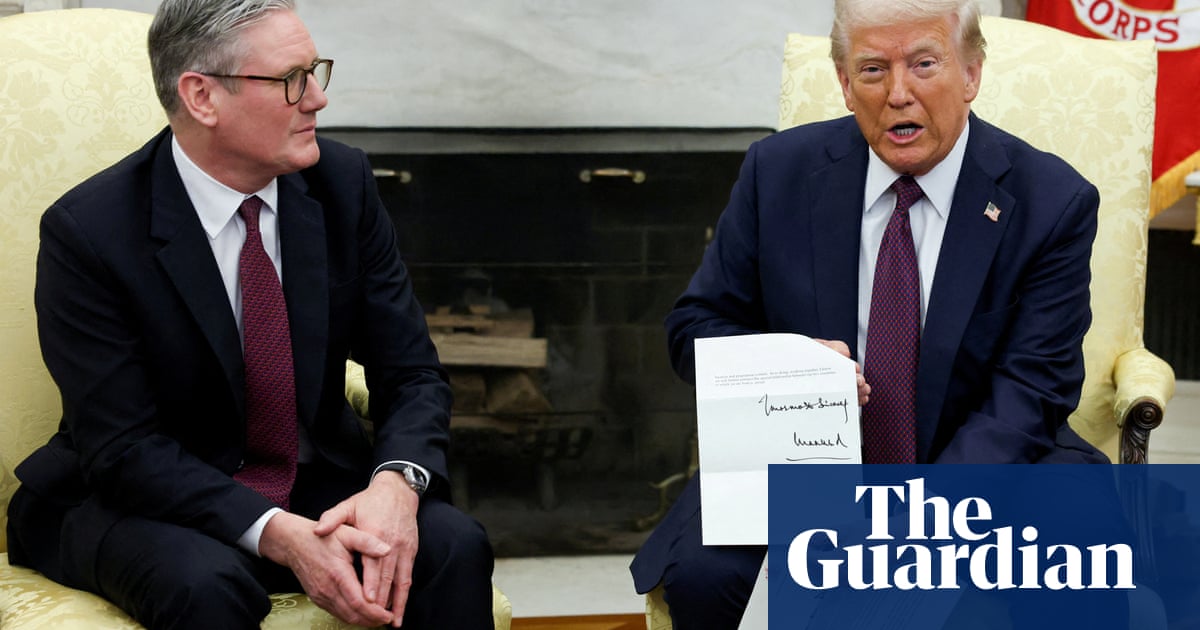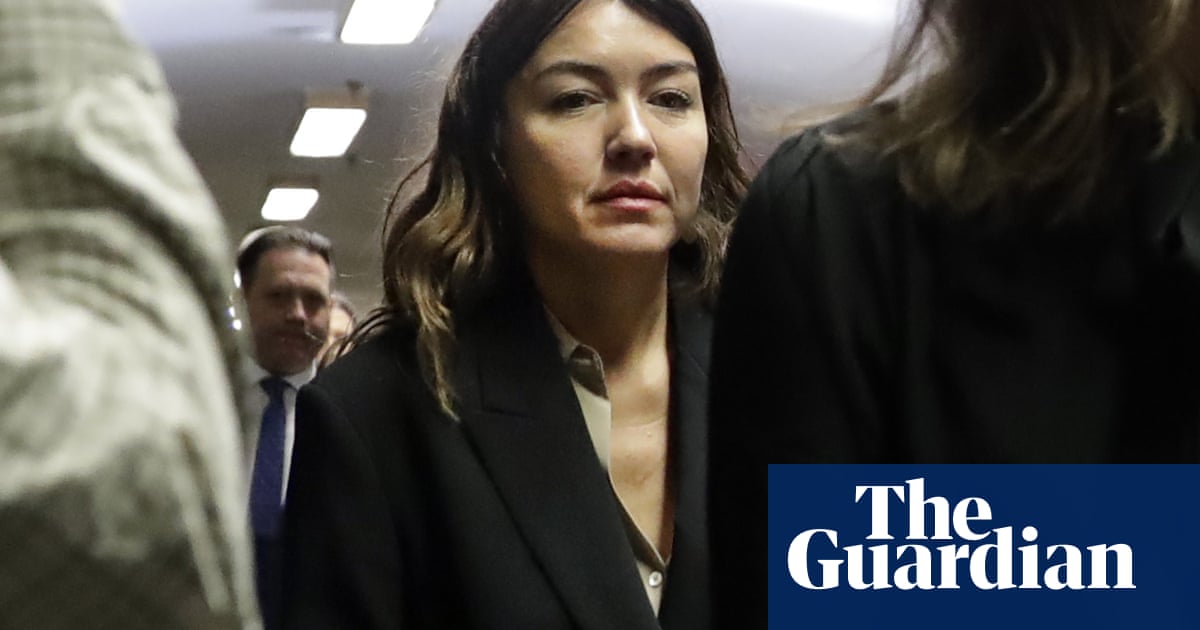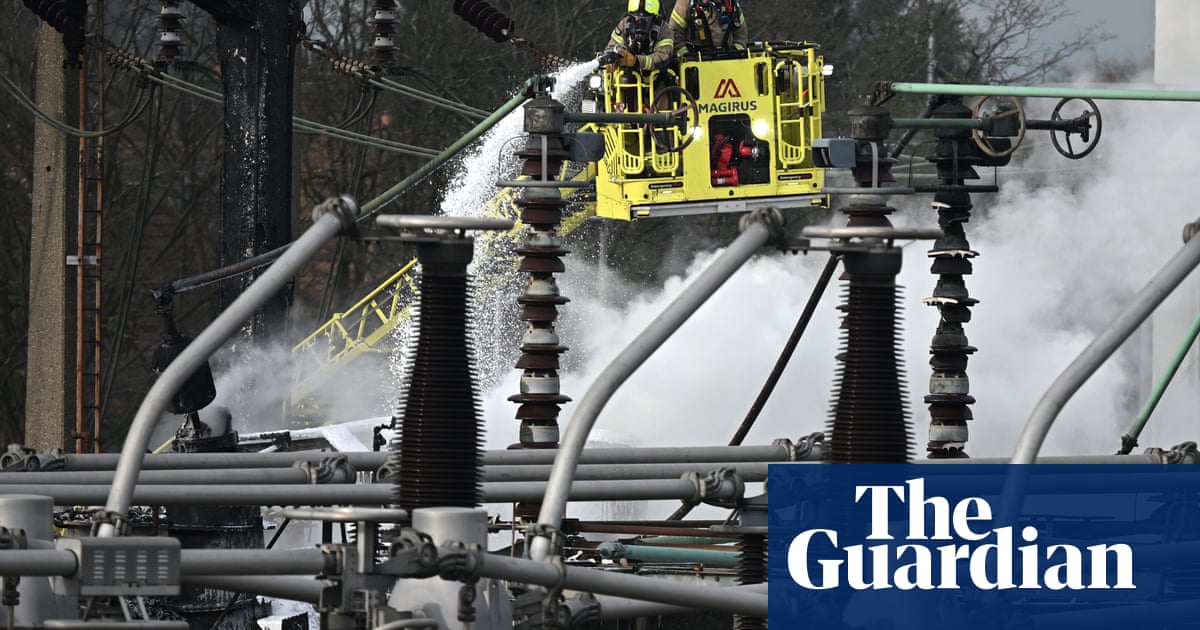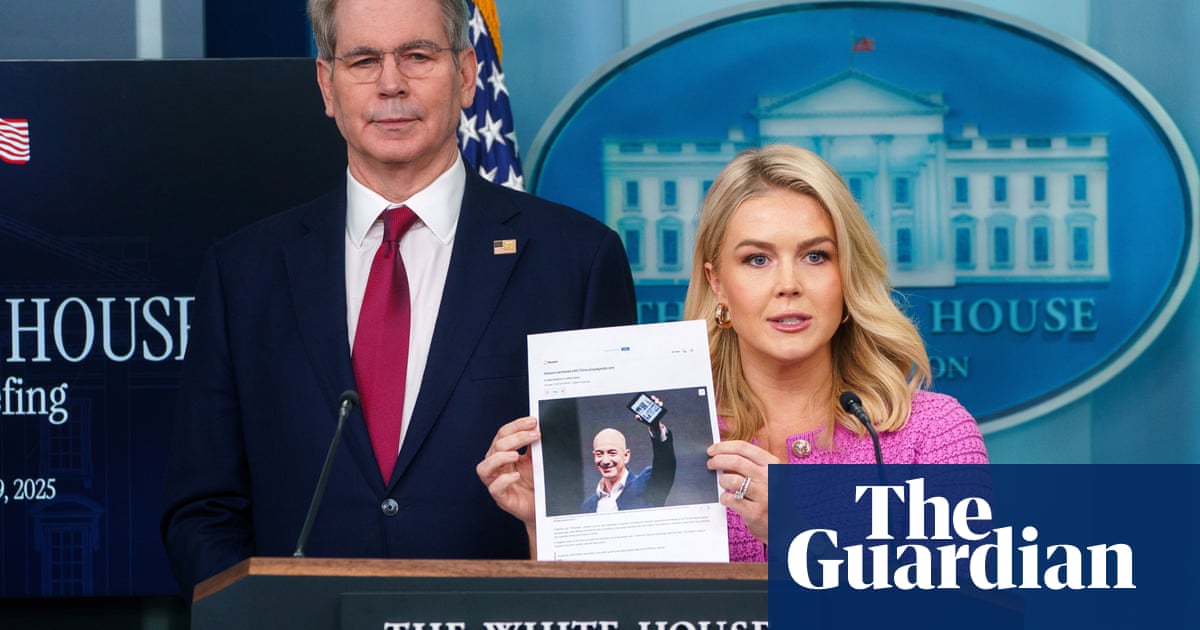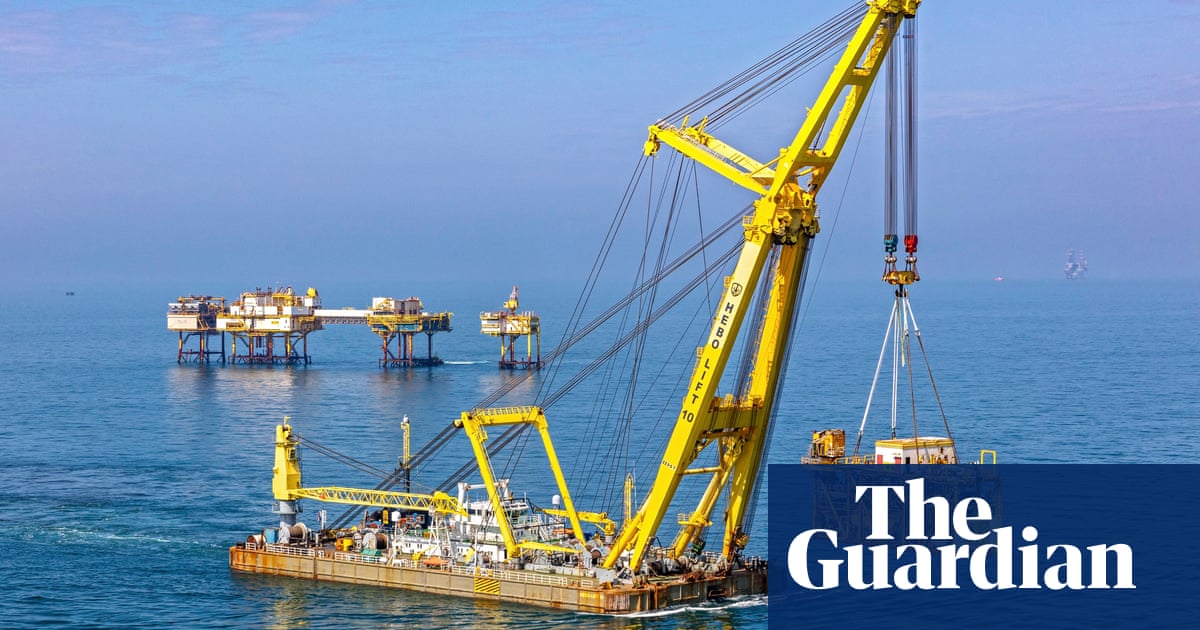Thirteen more oil and gas licences could be cancelled as ministers decide new guidance for fossil fuel extraction after a landmark court case, the Guardian has learned.
The admission that many more licences may ultimately be unlawful comes on the back of cabinet tensions over the future of two major oil and gas fields – Rosebank and Jackdaw – whose licences were last month found to have been unlawfully granted.
A judge ruled their applications did not take into account the emissions that arise from burning the oil and gas extracted from the projects.
Sources close to the chancellor, Rachel Reeves, suggested she was keen to find ways through new guidance to allow the licences to proceed.
The energy secretary, Ed Miliband, who has previously described drilling at Rosebank as “climate vandalism”, is in the midst of a consultation about how new oil and gas projects should account for these emissions. The result of that consultation will ultimately decide whether such projects are allowed to take place.
It can now be revealed there are more oil and gas projects whose futures hang in the balance. In an exchange with the Green MP Carla Denyer, the energy minister Michael Shanks was forced to admit that 13 oil and gas fields currently at consent phase are subject to the recent court ruling.
A number of Labour MPs told the Guardian earlier this month that they believed there would be significant resistance in the party if the guidance ultimately led to the drilling being allowed to go ahead at Rosebank.
But Shanks told parliament this week that the impact of the court ruling was likely to extend beyond Rosebank and Jackdaw. He said “existing licences will be honoured, and we will not remove licences from fields that already have a licence.
“However, consents – the point at which extraction takes place – must take into account climate tests, and not least the compatibility test laid down by the supreme court. Any applications now or in future must take account of that.”
A source at the Department for Energy Security and Net Zero said licences that were at “consent level” would be subject to this consultation which is being helmed by Miliband.
The result of that consultation may preclude the development of new oil and gas projects in the North Sea, the source said, but would depend how far along they were in their application phase. Government data shows there are 13 licences at that stage.
The guidance will cover how companies can account for “scope three emissions” – those caused by burning fossil fuels. It comes after a landmark case last year which set a precedent that these emissions have to be accounted for in planning applications.
This guidance is under consultation but it is expected to set out how scope three emissions can be recorded and accounted for, and if they can be mitigated.
Climate experts including Tessa Khan at Uplift, who brought the successful case against Rosebank, have argued that no scope three emissions are acceptable and that allowing new oil and gas fields would breach the UK’s climate goals.
Alexander Kirk, a fossil fuels campaigner at Global Witness, said the consultation should result in the cancellation of all the new licences in the pipeline. He added: “What the vast majority of people in the UK want is energy that’s cheap and clean, like wind and solar. Fossil fuels are dirty, expensive, and we know that they’re turbo-charging climate breakdown.
“If this government wants to stay true to its climate promises, it must cancel all new licences. From the LA wildfires to devastating floods closer to home – from Leicestershire to Valencia – our climate is reaching boiling point. Our politicians must do what they can to prevent further damage and that means keeping oil and gas in the ground.”
A Department for Energy Security and Net Zero spokesperson said: “Fields with a licence but not yet consented may be awaiting additional guidance before determining whether to proceed with their developments – this depends where they are in the regulatory process.
“However, this is a commercial matter for the relevant companies.”

.png) 2 months ago
26
2 months ago
26

